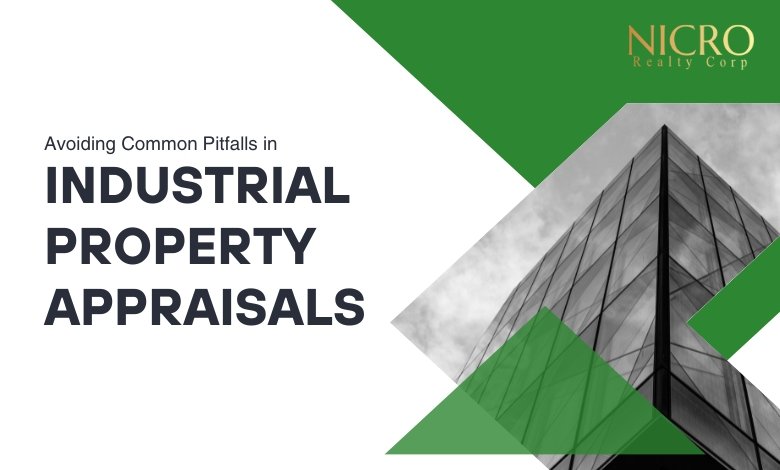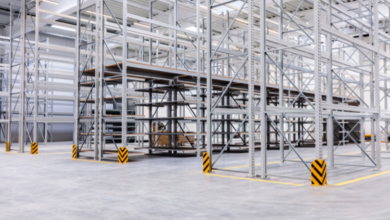Avoiding Common Pitfalls in Industrial Property Appraisals

Industrial property appraisals serve as the foundation for various real estate transactions, including purchases, sales, leasing, and financing. The process involves determining the value of industrial properties based on various factors, making it essential to avoid common pitfalls that can lead to inaccurate valuations.
Importance of Accurate Appraisals
Accurate appraisals are crucial as they form the basis for financial decisions. A property overvalued can result in overpaying, while undervaluation could lead to missed investment opportunities. Ensuring precise valuations safeguards your investment interests.
Selecting Qualified Industrial Appraisers
Choosing the right industrial appraiser with expertise in industrial properties is paramount. If you’re in Oakville, consider seeking out a qualified commercial appraiser in Oakville, such as Nicro Realty. Verify their credentials, experience, and knowledge of the local market to ensure a reliable appraisal.
Data Collection and Analysis
Thorough data collection, including property specifics, market data, and comparable sales, is essential. Analyzing this data with precision helps in arriving at an accurate property value.
Consideration of Market Trends
Market trends have a significant impact on property values. Understanding current and future market trends helps in making informed valuation decisions.
Specialized Property Features
Industrial properties often have unique features that require specialized knowledge to evaluate accurately. Factoring in these features is crucial to avoid undervaluation.
Environmental Factors
Environmental issues can impact property values. Addressing potential environmental risks and compliance with regulations is vital during appraisals.
Income Potential Evaluation
For income-generating industrial properties, evaluating the income potential is essential. Rental income, occupancy rates, and market demand play a vital role in valuation.
Avoiding Overvaluation
Overestimating a property’s value can lead to financial losses. Being realistic and unbiased in assessments prevents overvaluation.
Legal and Regulatory Compliance
Industrial properties are subject to various regulations and zoning laws. Appraisals must consider compliance, as non-compliance can affect property value.
Also Read: What is a Portfolio Appraisal?
Impact of Surrounding Infrastructure
Proximity to transportation, utilities, and amenities influences property values. Assessing the impact of surrounding infrastructure is crucial.
Balancing Cost and Value
The cost of constructing an industrial property does not always reflect its market value. Balancing the cost approach with the income and sales comparison approaches is vital.
Risk Assessment
Appraisals must consider potential risks that could affect property value. Economic, market, and industry risks should be evaluated.
Appraisal Reporting
A comprehensive appraisal report transparently communicates the valuation process and factors considered. Clear reporting enhances trust and understanding.
Continuous Learning and Adaptation
The field of industrial property appraisals evolves. Appraisers should stay updated with industry trends and regulations to provide accurate valuations.
Conclusion
Navigating industrial property appraisals requires a keen understanding of potential pitfalls. By selecting qualified industrial appraisers, analyzing data meticulously, considering market trends, and accounting for specialized features, environmental factors, and income potential, investors can ensure accurate and reliable valuations.





